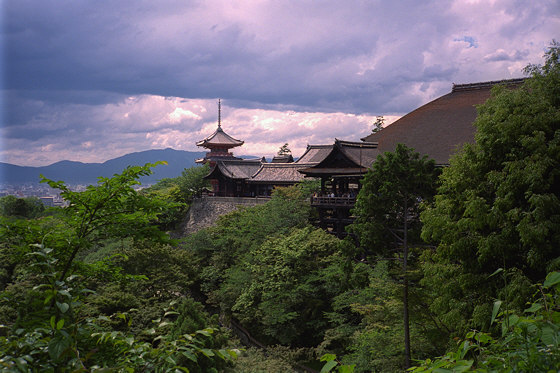Becoming a Missing Person
"People who are suicidal can have this fantasy where they can have a temporary escape -- a temporary suicide. And maybe that way they will stand out, and somebody will come along and save them. Maybe this was some form of this woman testing fate."
Dr. Simon Hatcher, professor of psychiatry, University of Ottawa
"Sometimes people romanticize about how they might control their death, and they can become fixated on a place."
"Maybe this woman came to Canada to create some distance from her family, and to spare them from it."
Karen Letofsky, executive director, Toronto Distress Centres
"Nobody knows what happened to her. And there is a good chance nobody ever will."
"Can you imagine what this must be like for her family?"
David Radcliffe, Yellowknife, Northwest Territories
 The Canadian Press / RCMP Atsumi
Yoshikubo, a 45-year-old Japanese psychiatrist with long black hair and
brown eyes, and a history of traveling alone, checked into The Explorer
Hotel in Yellowknife on Oct. 17. Two days later she visited a gift shop
and tourist information centre. Security footage shows her wearing a
pink coat, a pink hat, black pants and white shoes. On Wednesday Oct. 22
she was seen walking out of town, toward Jackfish Lake. She hasn’t been
seen since
The Canadian Press / RCMP Atsumi
Yoshikubo, a 45-year-old Japanese psychiatrist with long black hair and
brown eyes, and a history of traveling alone, checked into The Explorer
Hotel in Yellowknife on Oct. 17. Two days later she visited a gift shop
and tourist information centre. Security footage shows her wearing a
pink coat, a pink hat, black pants and white shoes. On Wednesday Oct. 22
she was seen walking out of town, toward Jackfish Lake. She hasn’t been
seen sinceThere is that about nature that fascinates the Japanese; veneration for nature is embedded in Shinto (Buddhism) and in the Japanese tradition of living within nature, respecting and enjoying it. Living briefly in Japan decades ago, we often noted the propensity of Japanese taking early-morning buses -- subways, trains in a long complicated journey to exit Tokyo to arrive at a countryside venue adjacent forests and mountains -- would be dressed for the part, in alpen-clothing.
We had ourselves joined an outdoor-hiking group that arranged bi-weekly outings into the forests of Japan. Those long hikes had a twofold purpose for the Japanese among the group comprised largely of Japanese, Australians, Germans, and we two Canadians; it gave the Japanese an opportunity to try out their English proficiency among European English-speakers while still enjoying forested uphill romps.
 |
| Kyoto, Kiyomizudera Temple with its pagoda on the skyline. |
Hiking through the mountains around Tokyo one comes across shrines and temples built atop them on occasion, with some enterprising Japanese setting up roadside stands selling useful walking sticks. At some places one can take part in tea ceremonies. And at other places signs warn to be cognizant of the presence of monkeys not to be monkeyed with.
Striding through a bamboo forest is a mystic experience, particularly with the presence of stone lanterns set amidst the tall straight bamboo, as large in circumference as any modestly robust tree of some agedness.
Atsumi Yoshikubo had no need to come to Canada's Northwest Territories to lose herself in the wilderness surrounding Yellowknife; Japan has ample wilderness areas of its own, where a lone hiker at the forest of choice might or might not see anyone else to say Konnichawa! and pass on. There is no lack of places where someone estranged from life can choose solitude, and even, if the mood strikes, seek to end their life.
Japan is no stranger to suicide within its population. Many, it would appear, decide they will do so within the confines of a forest. The author of The Complete Manual of Suicide, Wataru Tsurumi, considers the forest to be the "perfect place to die". Alone in a forest, things can take on an spectral appearance, and sounds can assume a very alien timbre to those accustomed to living in tight shared spaces like Tokyo.
In the case of the 45-year-old Atsumi Yoshikubo, a practising psychiatrist with a penchant for travel often on her own, it might not have been unusual that she chose Canada, staying at The Explorer Hotel in Yellowknife. She arrived there on October 17. A closed-circuit video camera filmed her shopping on the 19th at a gift shop and tourism information centre. Three days later she was seen walking out of Yellowknife, in the direction of Jackfish Lake.
When she failed to return, the RCMP was contacted and an extensive search began with hundreds of locals taking part. Then, on November 4, the RCMP announced the search was ended, issuing a media release that Ms. Yoshikubo had "arrived in Yellowknife with a plan to go into the wilderness and become a missing person."
Evidently she had left a suicide note with a friend back in Japan. Her brother felt his sister meant to return to Japan; her airfare reservation was for a round trip, and she had bought mementos of her trip, presumably intending to take them back home with her. But her brother hadn't seen her in ten years, and had no idea his sister had flown to Canada on a trip.
In Yellowknife last week it was quite cold, at minus-19 Celsius; undoubtedly even colder in the forests surrounding the city. Late October isn't an ideal time of year to venture out into a forest unknown to the venturer. At this time of year in Canada the ground, preparatory to deep-freezing, becomes wet and slippery, making traction difficult if heading up- or downhill. Ice begins to form, and the nights are not fit for man nor beast.

0 Comments:
Post a Comment
<< Home